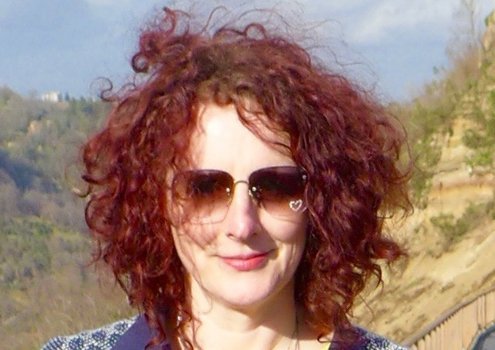Reading time: About 2 minutes
I like to share interesting pieces of figurative language I encounter in my reading. I write today about metaphors and personification from Maggie O’Farrell…
I’ve been a longtime fan of the Maggie O’Farrell, the award-winning Irish novelist who now lives in Edinbourgh.
Her luminous novel Hamnet, based on the life of the family of William Shakespeare, makes a link between the death of the Bard’s 11-year-old son and the writing of the play Hamlet.
Now, Maggie O’Farrell’s latest novel, The Marriage Portrait, tells the story of the short life of Lucrezia de’ Medici, who may or may not have been poisoned by her husband, Alfonso II, Duke of Ferrara.
A gripping story, written in gorgeous prose, the book is filled to the brim with figurative language. Here are my favourite examples:
- The air in the room was frigid and still; moving across it felt, to Lucrezia, like wading through an icy lake.
- Word pressed themselves into her memory, like a shoe sole into soft mud, which would dry and solidify the shoe print preserved for ever.
- She didn’t eat, but let her spoon sweep from one side of the bowl to the other, like an oar pushing a galley ship through the sea.
- At the sight of this kiss between mother and daughter, the crowd gives up a great cheer, which bounces over them and back. It is as if someone is tossing a bright golden ball from one side of the carriage to the other.
- The faces of the Florentines lining the street are blurred by motion, daubs of paint dissolving in water.
- A strange place for a tomb, she thinks, the floor of a church, where all may scuff their feet against you, tread on your eternal rest.
- She wanders past a bank of flowers with thick purple blooms, which undulate and vibrate with the preoccupied movements of hundreds of bees, rising and resettling. She ducks beneath the bower where the star-like petals of jasmine leak their scent into the air.
- [The river’s] surface is opaque, blistered by deep and unseen currents, its edges lapping at the banks with lassitudinous ochre tongues. It pulls along with it, snared in its current, leaves, twigs, the swollen bellies of small and drowned mammals, particles of mud; the grasses on the bank it tries to yank out and carry along, but they resist, holding firm to the soil with their long-reaching roots, their green stems supple and playful, bending with and against the current’s wishes.
- A few darkening clouds, stained pink and orange, hang above the villa, as if too exhausted to move on.
- The stupefying heat of the past few weeks has retreated somewhere to hide, to lick its wounds. Raindrops fall, large as coins, through the open window and on to Lucrezia’s face and neck.
- Applause descends like a rainstorm.
- Sleep will not come for her; it is a steed she cannot catch or harness; it throws her off, it takes flight if she come near, it refuses her entreaties.
- She misses, with a pain sharp and distracting as toothache, the view from the top of the walkway, down into the piazza, the tops of the statues, the hidden scent of the Arno.
[Photo credit: Cropped image from Saul Sutcliff, Creative Commons]


